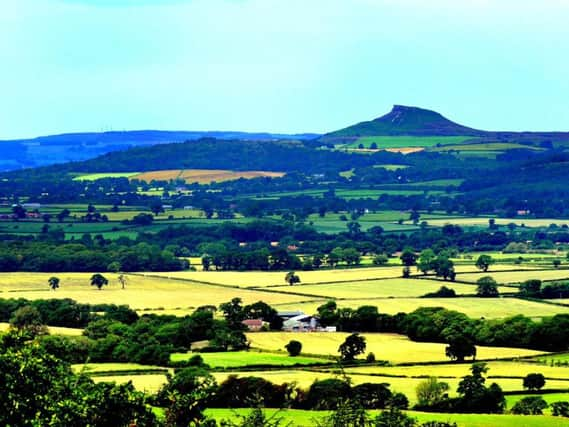Samaritans launch Rural Support Initiative in North Yorkshire
This article contains affiliate links. We may earn a small commission on items purchased through this article, but that does not affect our editorial judgement.


Yorkshire and Humberside Samaritans have launched a Rural Support initiative, in partnership with the Yorkshire Agricultural Society, aimed at reducing incidences of suicide and alleviating mental ill health among the rural community.
The Samaritans operate from a centralised telephone number which distributes received calls to an open branch.
Advertisement
Hide AdAdvertisement
Hide AdThis allows the charity to answer the maximum number of calls possible enabling them to fulfil their slogan: “help when you need help".
There is a national team of 28,000 volunteers who provide 24/7 coverage. Using emails and SMS, the service can be accessed from anywhere in the world.
Samaritan David Moyles said: “People tend to think that farmers are wealthy, but that really isn’t the case. They tend to be asset rich but cash poor.
“There are stories in the media all the time which impact their livelihoods. A paper may run a story such as ‘Is it healthy to eat meat?’and sales of meat will fall. You can’t imagine the amount of stress this puts them under.
Advertisement
Hide AdAdvertisement
Hide Ad“Rural communities tend to be quite isolated by nature. Farmers, whether they be men or women, are used to getting things done. They don’t like to talk about what’s going on inside their heads. They tend to be private people, with a mentality of I’ll get by.
“Most of the time, farmers deal with the pressure admirably. We’re here for when they don’t.”
The training involved to become a Samaritan is intense: there is an induction day, an interview, eight modules of study and a further six months of side by side training.
David began his initial training in July 2017, before finally becoming a full Samaritan in March 2018.
Advertisement
Hide AdAdvertisement
Hide Ad“There are always a minimum of two people on shift, providing mutual support for each other,” said David. “If there is a particularly challenging situation, you can call your partner across for assistance.”
“If someone has decided that things are so bad that they have decided to take their own life, it’s not our job to change their minds. Sometimes they just want to know that someone is there with them. Sometimes they talk it through with us and ask us to call an ambulance. Sometimes they don’t.
“We’re not just around for suicidal people, we’re there for anybody. We’ll talk things through with you, most of the time I’m just a friendly ear.”
Whatever you're going through, the Samaritans can be reached 24 hours a day, 365 days a year by calling 116 123. Or you can find out more on their website, www.samaritans.org